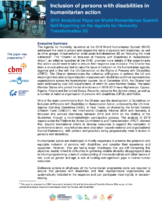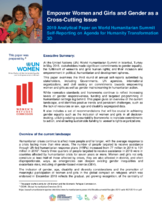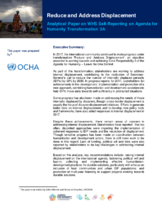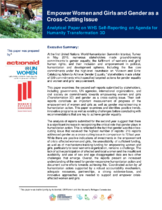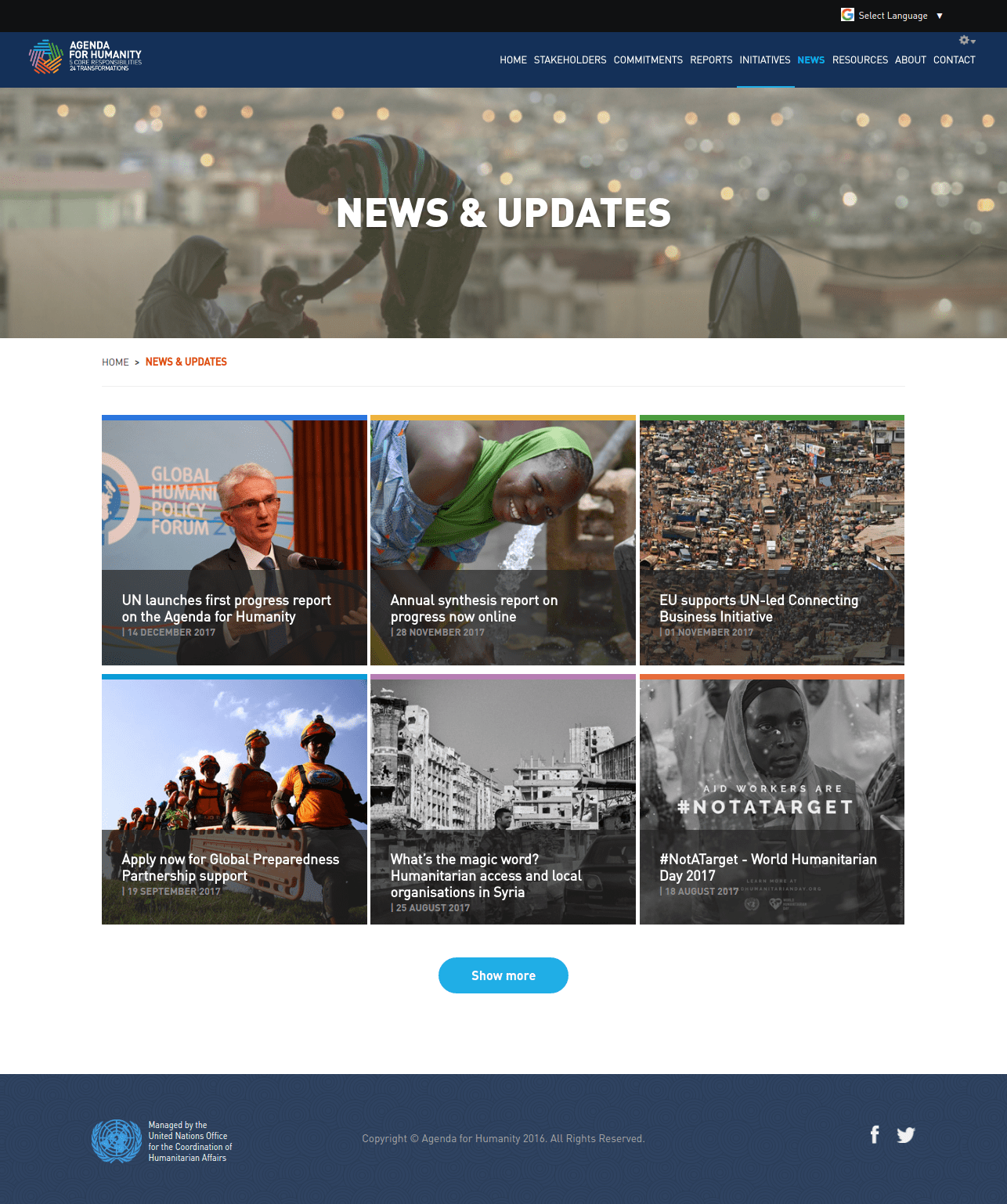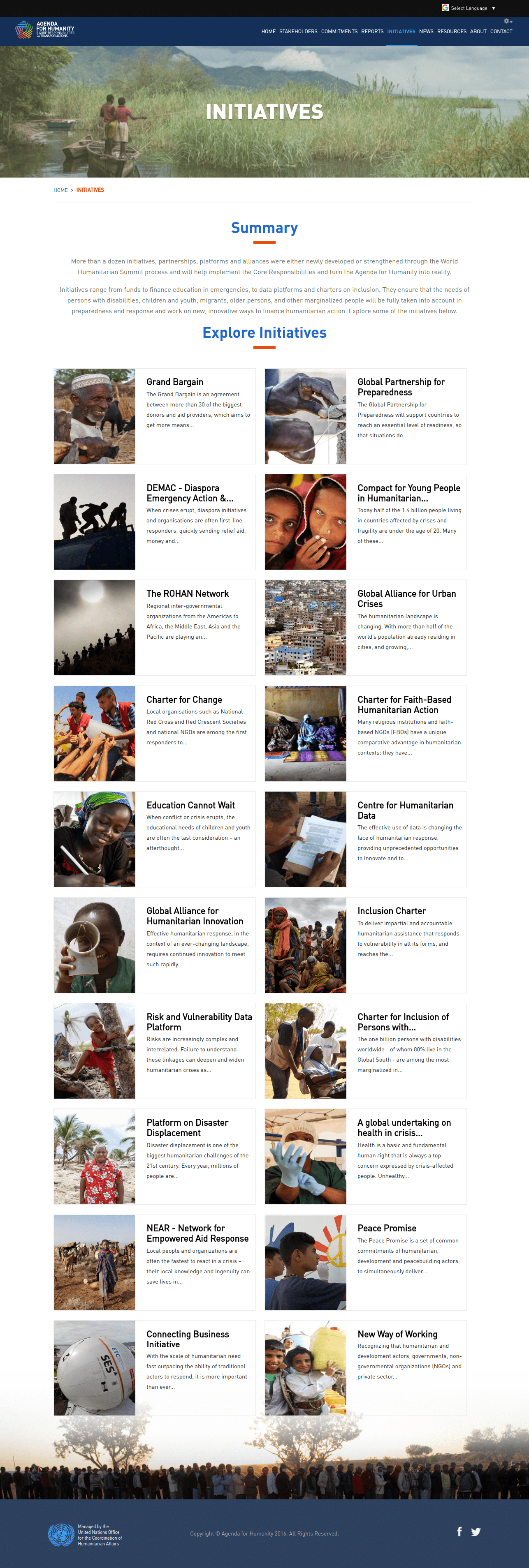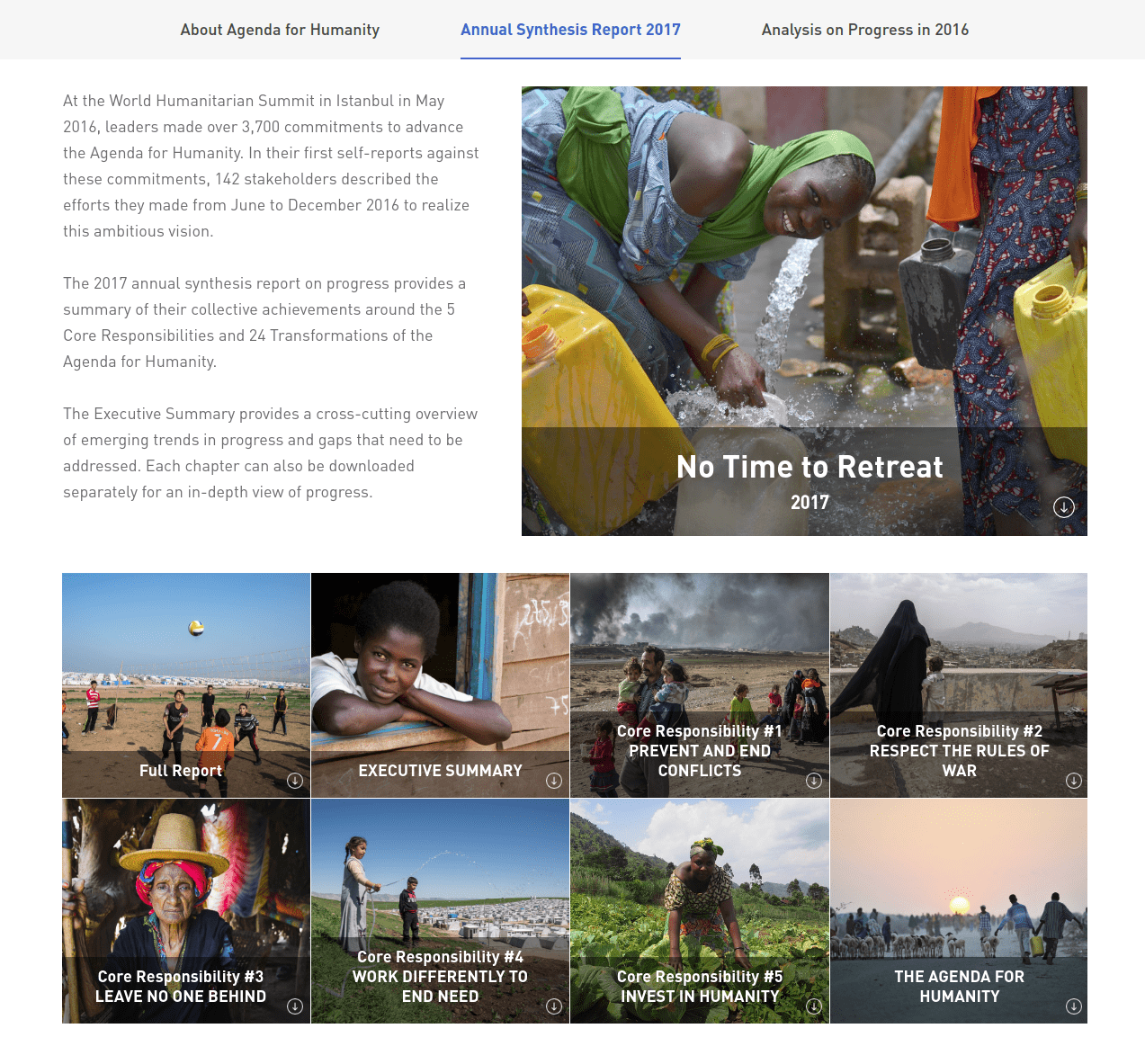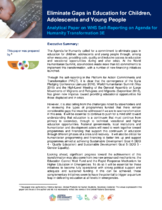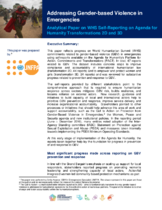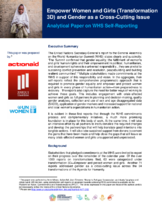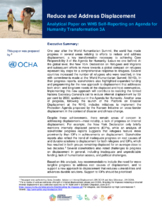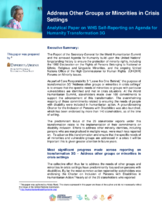Leave No One Behind
Honouring our commitment to leave no one behind requires reaching everyone in situations of conflict, disaster, vulnerability and risk.
The Agenda for Humanity calls on leaders to transform the lives of those most at risk of being left behind. This means reaching everyone and empowering all women, men, girls and boys to be agents of positive transformation. It means reducing displacement, supporting refugees and migrants, endings gaps in education and fighting to eradicate sexual and gender-based violence. Leaders need to make bold commitments to achieve a world where the world’s poorest will be targeted in development programmes, where world leaders work together to halve displacement and come up with strong plans to protect them, where women and girls will be empowered and protected, and where all children, whether in conflict zones or displaced, will be able to attend school.
Agenda for Humanity Transformations
The Agenda for Humanity advocates for seven strategic and normative transformations that are necessary in order to leave no one behind.

Reduce and address displacement
Address displacement: A new approach to addressing and reducing displacement is required through meeting immediate humanitarian needs and improving displaced persons and their host communities resilience and self-reliance. A measurable target of at least 50 per cent should be set to reduce new and protracted internal displacement by 2030 in a dignified and safe manner. States and the international community must also prepare for cross-border displacement owing to disasters and climate change. Countries and communities must receive adequate support to ensure displaced persons can receive better services and economic opportunities.

Address the vulnerabilities of migrants and provide more regular and lawful opportunities for migration
Address migration: A collective and comprehensive response to displacement, migration and mobility is required. States should provide more legal pathways for migration and provide humanitarian visas and protection for those who do not fall under the 1951 Convention relating to the Status of refugees. The specific vulnerabilities of migrants should be integrated into humanitarian and other response plans. Effective cooperation to combat human trafficking and migrant smuggling is critical.

End statelessness in the next decade
End statelessness: States should commit to ending statelessness by 2024 through supporting the “I Belong” campaign and acceding and implementing the Convention relating to the Status of Stateless Persons and the Convention on the Reduction of Statelessness.
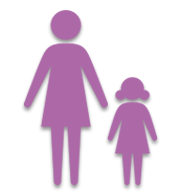
Empower and protect women and girls
Empower and protect women and girls: Full and equal participation by women and girls in civil, political, economic and social spheres and in decision-making must become the standard to which all actors are held accountable in their development and humanitarian programming and funding. Access to livelihoods opportunities must be scaled up and expanded. Priority must be given to providing women and adolescent girls with comprehensive sexual and reproductive health-care services without discrimination.

Eliminate gaps in education for children, adolescents and young people
Ensure education for all in crisis: Sufficient domestic and international funding must be made available for quality education programmes, during and after crises. Education must be safe, inclusive, free of exploitation and protected from attacks and abuse by military groups. All education programmes should include secondary education and provide vocational opportunities. States should commit to providing education and certification for displaced persons, in line with national qualifications and standards.

Enable adolescents and young people to be agents of positive transformation
Empower young people: Empower and promote the participation and leadership of young people in national, local and international conflict prevention and resolution responses and in the recovery of communities. Programmes that successfully integrate refugee youth into communities, provide education, vocational training and employment opportunities should be increased and supported.

Address other groups or minorities in crisis settings
Include the most vulnerable: The needs and risks faced by the most vulnerable and disadvantaged groups, including women and girls, persons with disabilities, older persons, adolescents and ethnic minorities must be identified and prioritized. National and international organizations should put in place strategies and programmes with a specific focus on protecting and respecting the rights of the most vulnerable and disadvantaged underpinned by comprehensive data analysis.
Summary of Commitments made

* The count includes Core, Individual and Joint commitments
The World Humanitarian Summit brought representatives of vulnerable communities face-to-face with senior political and humanitarian leaders, and generated over 1,000 commitments to leave no one behind. Click the button below to view the commitments.
Progress Reports
Click the button below to view stakeholders' progress reports on Core Responsibility Three.


